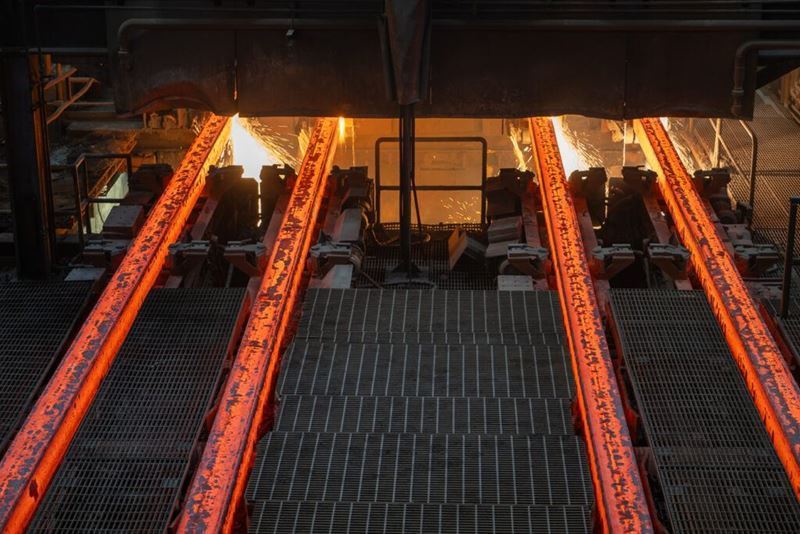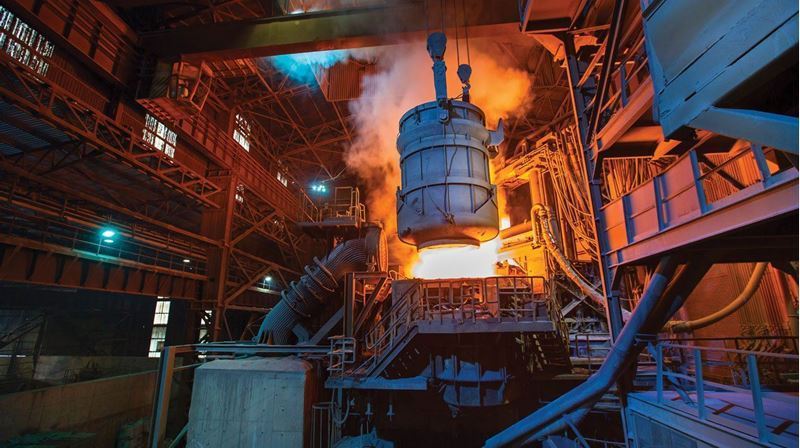The new Industrial Strategy announced by the UK government includes significant adjustments to electricity costs for industry. UK Steel, which represents the country's steel industry, stated that the strategy will save the industry millions of pounds annually by reducing industrial electricity prices.
In the assessment made by UK Steel, three basic steps announced by the government for the industry stood out. Accordingly, the increase in grid compensation from 60% to 90% from 2026, in line with rates in Germany and France, will provide a cost advantage of GBP 6.5 per megawatt hour (MWh). This reduction is expected to save the industry around GBP 14.5 million annually.
Another important step was the continuation of the indirect compensation scheme, which compensates the steel industry for carbon taxes reflected in electricity bills. If this support mechanism does not continue, the price of industrial electricity will increase by GBP 20 per MWh, adding an additional burden of approximately GBP 45 million to the sector's annual electricity costs.
The third and comprehensive step is the exemption of non-electro-intensive businesses from cost items such as the Renewables Obligation, Feed-in Tariffs and the Capacity Market as part of the “British Industrial Competitiveness Plan” to be implemented by 2027. UK Steel noted that this arrangement would reduce electricity prices by GBP 43 per MWh for eligible producers, while the government has stated that this reduction would represent up to 25% of electricity bills.
Gareth Stace, Director General of UK Steel, stated: "The government has taken decisive action to reduce industrial electricity prices and has aligned its policies with UK Steel's proposed solutions. High electricity prices in the UK have long undermined the steel industry's profitability and growth, while also hampering investment in green transformation."
Stace continued his statement by saying that the strategy is a step in the right direction, but that there are still many obstacles to overcome: "This is an important milestone, but it is only the beginning. Further structural reform is needed to unlock the full potential of the UK steel industry and contribute to the national economy."
UK Steel also announced that, together with the respected energy consultancy Baringa, it has proposed a two-way “Contract for Difference” (CfD) that would fix wholesale electricity prices, similar to those in France and Germany, to ensure competition with Europe. This mechanism would be based on mutual trust, with the public being reimbursed when market prices fall below the fixed price.
According to UK Steel, steelmakers in the UK will buy electricity for an average of GBP 66 per MWh in 2024/25, compared to GBP 50 in Germany and GBP 43 in France. The difference means that steelmakers are paying between GBP 37 and GBP 50 million more per year in electricity bills than their competitors.
UK Steel also pointed out that the steel industry is very electro-intensive in terms of electricity consumption, and that the industry's electricity demand is expected to double with the transition to electric arc furnaces.
In addition to these steps to reduce energy costs, the government's new Industrial Strategy also plans infrastructure investments, digitalization, R&D support and skills development programs for the industry.











Comments
No comment yet.